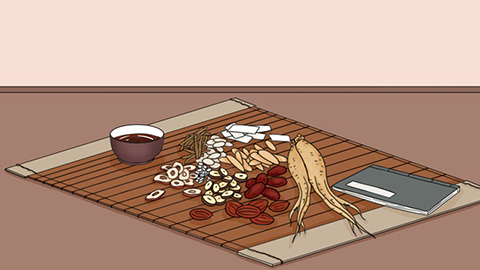Can I eat persimmons while taking traditional Chinese medicine?
Generally speaking, whether one can eat persimmons while taking traditional Chinese medicine (TCM) should be determined based on the nature of the herbal medicine and the individual's body constitution. Detailed analysis is as follows:

If the TCM being taken is of a warm nature and used to regulate a cold-deficient constitution, and the individual does not have significant internal heat, eating a small amount of ripe persimmons usually has minimal impact. However, it is important to separate the time of persimmon consumption and medication by at least 1–2 hours to avoid interference between the cooling nature of persimmons and the warming effects of the medicine. This also helps reduce the influence of tannic acid on drug absorption. The quantity consumed should be limited to half a persimmon or less each time.
If the TCM being taken is cold in nature—for clearing heat, relieving fire symptoms, or detoxification—or if the individual suffers from a weak and cold spleen and stomach with a tendency toward diarrhea, eating persimmons is not recommended. The cooling nature of persimmons may intensify the cold properties of the medicine, potentially irritating the gastrointestinal tract and causing discomfort such as abdominal pain or diarrhea. Additionally, tannic acid may interact with components of the herbal medicine, reducing its effectiveness and possibly increasing the burden on the gastrointestinal system.
During TCM treatment, it is advisable to consult the prescribing physician before consuming persimmons to clarify any dietary restrictions. Under any circumstances, only fully ripe persimmons should be consumed, and they should not be eaten on an empty stomach.





